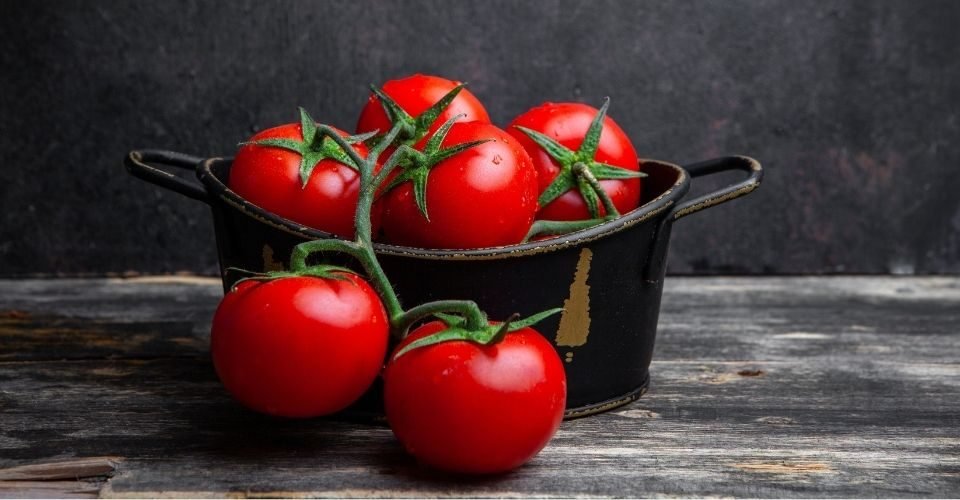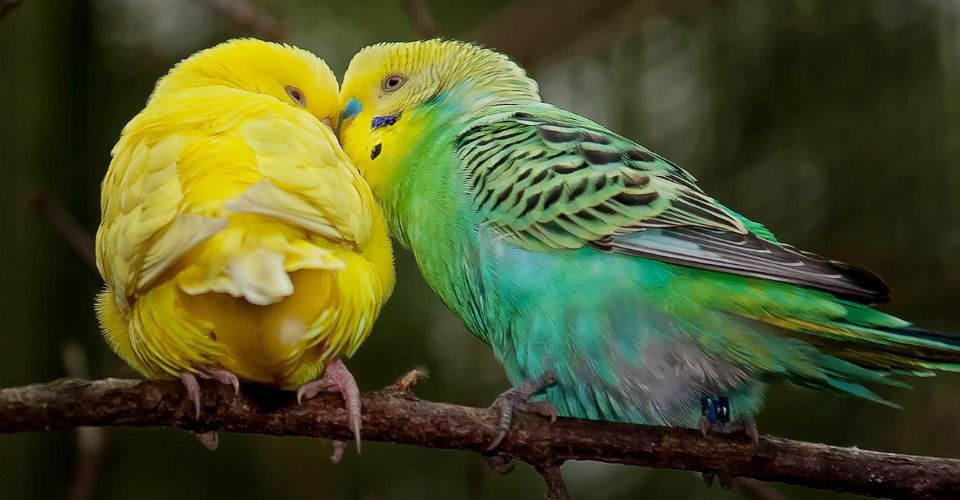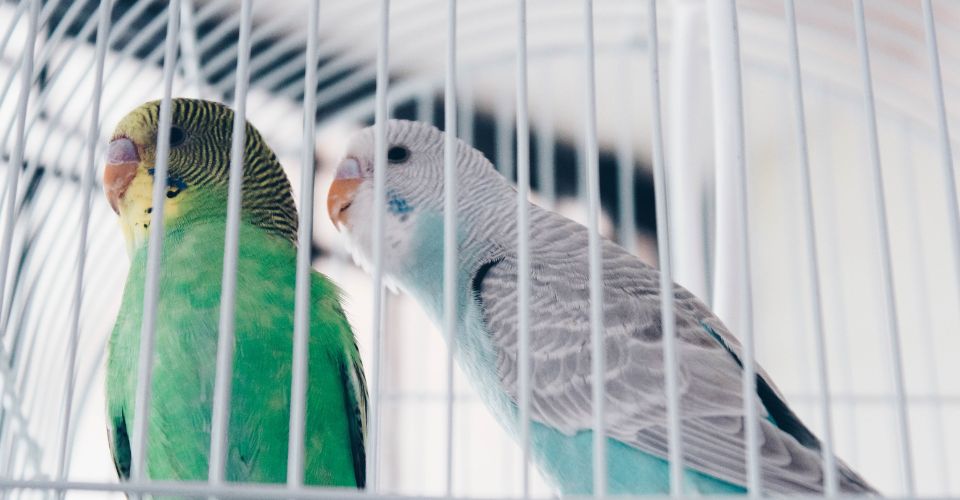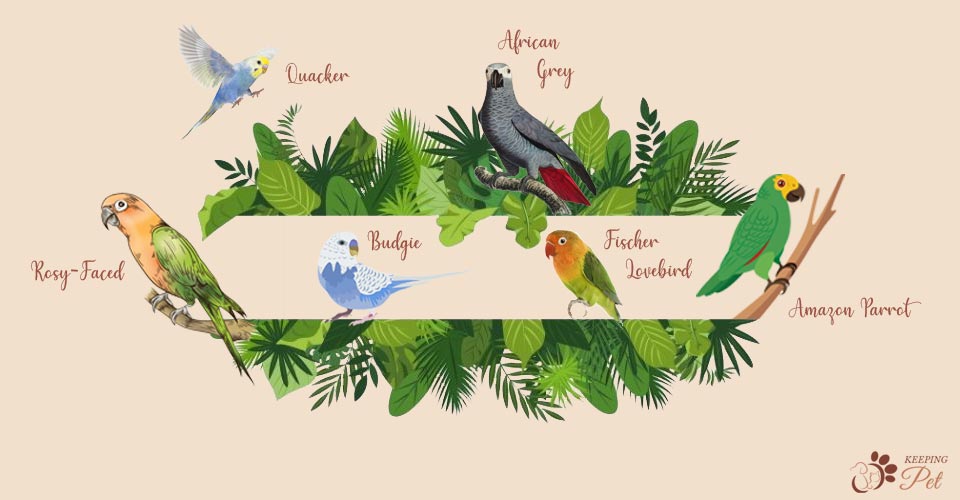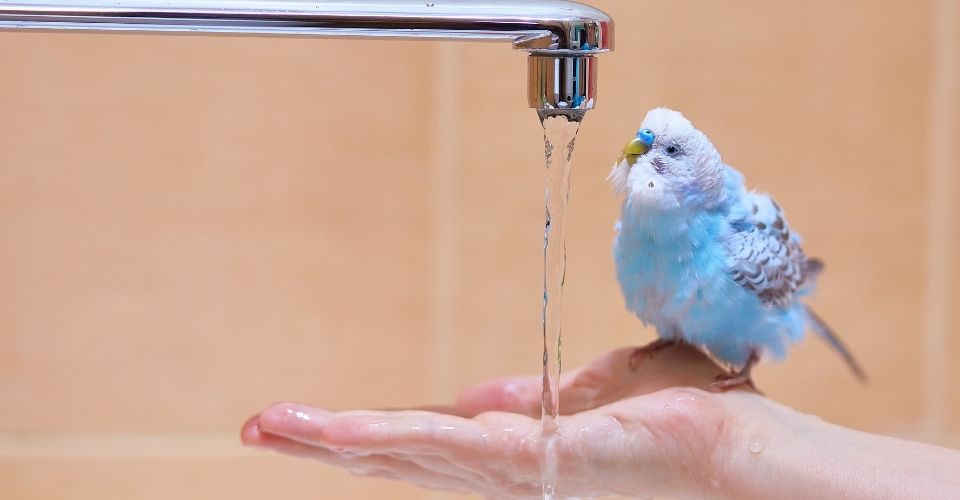Being a responsible parakeet parent includes, among others, giving your birdie the right food. For this, you just need to know which foods are safe for your birdie and which are best avoided before adding any new item to its diet. Today, we are going to talk about tomatoes. Can parakeets eat tomatoes? If they can, in which form and in which amount?
Can Parakeets Eat Tomatoes?
The answer is, yes, parakeets can eat tomatoes but not in a new form, as when their form is changed, their acidity levels may also change.
However, raw tomatoes are completely healthful for these tiny birds as they are low in acidity but should be given in a moderate amount. Raw or green tomatoes are usually less acidic, but parakeets tend to like tomatoes just as they ripen.
For humans, tomatoes pose no threat whether cooked or raw, but your parakeet is a tiny creature and does not have the same digestive system. Technically, tomatoes are non-toxic for parakeets. In the wild, you might see parakeets trying to get some bites of this juicy treat. But, keeping the small size of your pet in mind, you need to make adjustments to its meal and treats accordingly.
Health Benefits of Feeding Tomatoes to Parakeets
Fruits and veggies, such as oranges, strawberries, and grapes, add new flavors and tastes to your birdie’s diet and add different nutrition that may not be in other food items. Tomatoes are low-calorie vegetables with zero cholesterol and low fats.
Moreover, they are rich in vitamins, minerals, antioxidants, and dietary fiber.
Let’s find out the nutritional facts about tomatoes and how they benefit parakeets!
Vitamin A
Vitamin A deficiency leads to overgrowth, chipping, or flaking of your parakeet’s nails and beak. If vitamin A levels are not checked on time, it will break beaks and nails. A dose of tomatoes contains 1499 international units (IU) of vitamin A—a good number for parakeets— helping them maintain their nails and beaks.
Vitamin C
Vitamin C is an essential element for your feathery friend’s life. It helps in reducing stress and improving their mental health. It also boosts the immune system of your parakeet to fight sickness and keep them healthy all year long.
Thankfully, tomatoes are a good source of vitamin C; one cup of chopped or raw tomatoes contains 24.7 mg vitamin C. Your parakeet may not need 24.7 mg, but then, you are not feeding her one cup, too.
A piece of tomatoes once a week, or twice a week, will keep her in a position to fight diseases, and at the same time, improve their mental health.
Vitamin K
Tomatoes contain K1. Vitamin K helps in clotting blood and bone health. If your birdie injures itself, vitamin K will slow down the bleeding and work on healing the wound.
Antioxidants
Tomatoes contain a sizable amount of antioxidants, namely, alpha-lipoic acid, lycopene, choline, folic acid, beta-carotene, lutein, etc. Antioxidants are valuable components to help to fight free radicals in your birdie’s body.
Lycopene can benefit your birdie in many ways, not least in reducing the risk of heart diseases. Similarly, lutein and zeaxanthin help in fighting cancers.
Others
In addition, tomatoes contain 170.14g of water, 1.58g of protein, 2.2g of fiber, and 0g of cholesterol. Likewise, they contain 43mg of potassium, 43mg of phosphorus, and 18mg of calcium. All these are beneficial for your parakeet.
Health Concerns of Feeding Tomatoes to Parakeets
As discussed earlier, parakeets can eat tomatoes but in moderation. Only a quarter of slice once a week is okay to keep things safe. Unfortunately, if not supervised carefully, your birdie is more likely to overeat tomatoes. The two main health concerns of overfeeding tomatoes are as small as an upset tummy to a more severe issue like a stomach ulcer.
Remember that tomato leaves and vines are highly toxic to your feathered friend and should be avoided at all costs. These plants contain solanine in their roots, stems, and leaves. If your pet consumes these poisonous parts of tomato, it will result in solanine poisoning.
Besides, tomatoes contain 95% water which is good for your birdie’s hydration, but it’s not suitable for maintaining a balanced parakeet’s diet. Keep an eye on your birdie’s water consumption and adjust its diet accordingly.
How to Safely Feed Tomatoes to a Parakeet?
Parenting a bird is as complex as parenting a child; you always need to know whether your birdie is eating safe food or not. Tomatoes can be harmful to parakeets, but it depends on the form in which you feed them to your bird.
Let’s talk about how you can feed tomatoes to your birdie without their harmful effects.
80/20 Rule
You must always stick to the 80/20 rule for a concerned parakeet parent. Your birdie’s daily diet should be 80% of seeds and pellets and 20% of fresh fruits and veggies. Offering a quarter of a single slice once a week will be enough for your parakeet. Anything more than that is just asking for trouble. It might not create a bigger issue, but it is safe to be on the safe side than err.
Cooked Tomatoes
You can also feed your little friend cooked tomatoes because most acids are eliminated during the cooking process. But never cook the tomatoes in Teflon as it emits toxic and unhygienic substances for your pet.
Always cook fresh tomatoes at home. Ensure that they are thoroughly washed, clean and dust- and pesticide-free. Must de-seed tomatoes before cooking to further reduce acidity.
Premade Sauces
Premade sauces can be offered to your birdie, but you need to be a little careful because they may contain too much sugar and salt that is harmful to parakeets. Too much salt can upset the electrolyte and fluid balance in your parakeet’s body, resulting in excessive thirst and dehydration.
Check the label of sauce before feeding your birdie. Sauces prepared at home are preferable for parakeets.
Dried Tomatoes
Dried tomatoes are safe for parakeets because most of the acid is removed while making it. That is why your birdie can tolerate its consumption.
Sun-dried tomatoes can protect the body of your birdie from inflammation, and the antioxidants in them can help prevent oxidative stress.
Can Parakeets Eat Tomato Seeds?
The answer is no. Parakeets cannot eat tomato seeds as they are highly acidic. Make sure to discard the seeds from the tomato before offering them to your budgie.
You may be wondering that parakeets in the wild eat tomatoes without removing the seeds, and they do completely fine. Yes, that’s true. But your birdie is not living in the wild; it’s domestic and has needs that are wholly different from their cousins in the wild. The digestive and immune systems of wild parakeets have adapted themselves to the dynamics of the wild.
Also, since your birdie depends on your better judgment, it lacks that innate sense of self-preservation that the wild parakeets possess.
What to Do if My Parakeet Becomes Unwell After Eating Tomatoes?
Parakeets like to eat tomatoes, and in case your birdie has eaten a lot of tomatoes or has fallen sick after eating tomatoes, look for the falling symptoms:
- Falling from perch
- Lack of coordination
- Reduced mobility
- Shortness of breath
- Lethargy
- Vomiting
- Diarrhea
- Increased heart rate
If you encounter any of these symptoms in your feathery friend, rush it to the veterinarian or poison control center immediately and seek medical attention.
For mild and asymptomatic cases, leave your bird to heal by time instead of inducing vomit as it may lead to other serious problems, which will create more discomfort for your pet.
Alternatives of Tomatoes for Parakeets
Feeding your birdie a spoonful of chopped-up veggies and fruits as a snack or as a gift for behaving well is the best thing you can do. But not all parakeets may savor tomatoes—they are picky eaters. You may be wondering what other fruits and vegetables your birdie can eat instead of tomatoes as a treat.
Luckily, there are many fruits and veggies that your bird can eat without any issue, such as:
- Pears
- Apple
- Melon
- Kiwi
- Blueberries
- Oranges
- Bananas
- Celery
- Cucumber
- Carrots
- Cabbage
- Brussel sprouts
- Bok choy
- Squash
- Kale
- Parsley
- Conclusion
So, can parakeets eat tomatoes? Yes, they can but in small quantities. If fed too much, it can cause stomach upset or, in the worst case, stomach ulcer. Tomatoes have significant benefits for your birdie because they contain vitamin A, C, and K while also having a good amount of antioxidants.
That said, tomatoes can be a fine addition to your birdie’s diet if occasionally given as part of a balanced diet. Ideally, feeding your birdie a quarter of slice once a week along with seeds and pellets will be enough for it.

